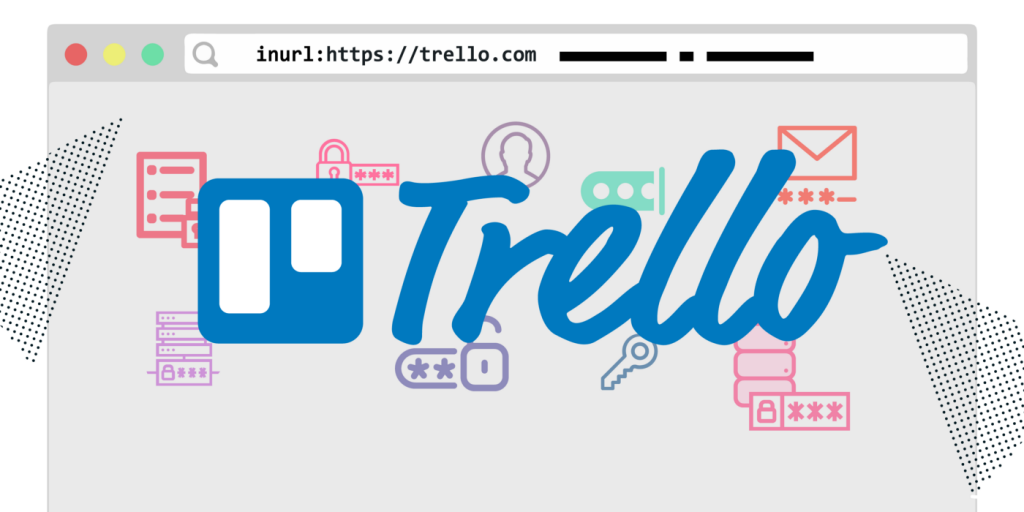Kushagra Pathak, a Security researcher, published a great text related to mining confidential data using Google search. We have reprinted his text below, while you can find original text at following URL: https://medium.freecodecamp.org/discovering-the-hidden-mine-of-credentials-and-sensitive-information-8e5ccfef2724
How I used a simple Google query to mine passwords from dozens of public Trello boards
A few days ago on 25th April, while researching, I found that a lot of individuals and companies are putting their sensitive information on their public Trello boards. Information like unfixed bugs and security vulnerabilities, the credentials of their social media accounts, email accounts, server and admin dashboards — you name it, is available on their public Trello Boards which are being indexed by all the search engines and anyone can easily find them.
How did I discover this?
I searched for Jira instances of companies running Bug Bounty Programswith the following search query:
inurl:jira AND intitle:login AND inurl:[company_name]
Note: I used a Google dork query, sometimes referred to as a dork. It is a search string that uses advanced search operators to find information that is not readily available on a website. — WhatIs.com
I entered Trello in place of [company name]. Google presented a few results on Trello Boards. Their visibility was set to Public, and they displayed login details to some Jira instances. It was around 8:19 AM, UTC.
I was so shocked and amazed 😲
So why was this a problem? Well, Trello is an online tool for managing projects and personal tasks. And it has Boards which are used to manage those projects and tasks. The user can set the visibility of their boards to Private or Public.
After finding this flaw, I thought — why not check for other security issues like email account credentials?
I went on to modify my search query to focus on Trello Boards containing the passwords for Gmail accounts.
inurl:https://trello.com AND intext:@gmail.com AND intext:password
And what about SSH and FTP?
inurl:https://trello.com AND intext:ftp AND intext:password
inurl:https://trello.com AND intext:ssh AND intext:password
What else I found
After spending a few hours using this technique, I uncovered more amazing discoveries. All while I kept on changing my search query.
Some companies use Public Trello boards to manage bugs and security vulnerabilities found in their applications and websites.
People also use Public Trello boards as a fancy public password manager for their organization’s credentials.
Some examples included the server, CMS, CRM, business emaiils, social media accounts, website analytics, Stripe, AdWords accounts, and much more.
Examples of public Trello boards which contain sensitive credentials
Here another example:
Until then I was not focusing on any specific company or Bug Bounty Programs.
But nine hours after I discovered this Trello vulnerability, I had found the contact details of almost 25 companies that were leaking some very sensitive information. So I reported them. Finding contact details for some of them was a tedious and challenging task.
I posted about this in a private Slack of bug bounty hunters and a infosec Discord server. I also tweeted about this right after discovering this Trello technique. The people there were as amazed and astonished as I was.
Then people started telling me that they were finding cool things like business emails, Jira credentials, and sensitive internal information of Bug Bounty Programs through the Trello technique I shared.
Almost 10 hours after discovering this Trello technique, I started testing companies running Bug Bounty Programs specifically. I then began with checking a well-known ridesharing company using the search query.
inurl:https://trello.com AND intext:[company_name]
I instantly found a Trello board that contained login details of an emplyee’s business email account, and another that contained some internal information.
To verify this, I contacted someone from their Security Team. They said they had received a report about the Board containing email credentials of an employee right before mine and about the other board containing some internal information. The security team asked me to submit a complete report to them because this is a new finding.
Unfortunately, my report got closed as a Duplicate. The ridesharing company later found out that they had already had received a report about the Trello board I found.
In the coming days, I reported issues to 15 more companies about their Trello boards that were leaking highly sensitive information about their organizations. Some were big companies, but many don’t run a Bug Bounty Program.
One of the 15 companies was running a Bug Bounty Program, however, so I reported to them through it. Unfortunately, they didn’t reward me because it was an issue for which they currently don’t pay.
And just the other day, I found a bunch of public Trello Boardscontaining really sensitive information (including login details!) of a government. Amazing!
Source
https://medium.freecodecamp.org/discovering-the-hidden-mine-of-credentials-and-sensitive-information-8e5ccfef2724
